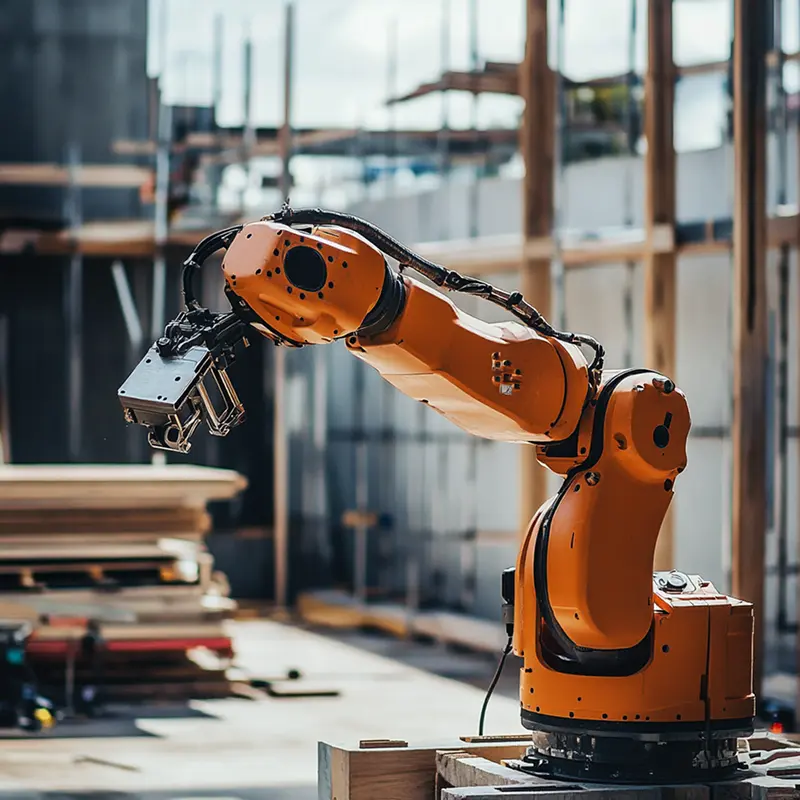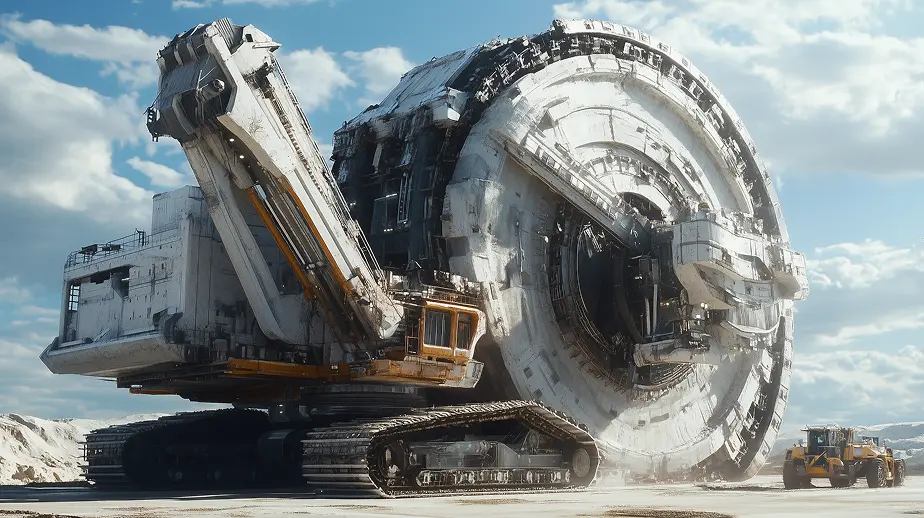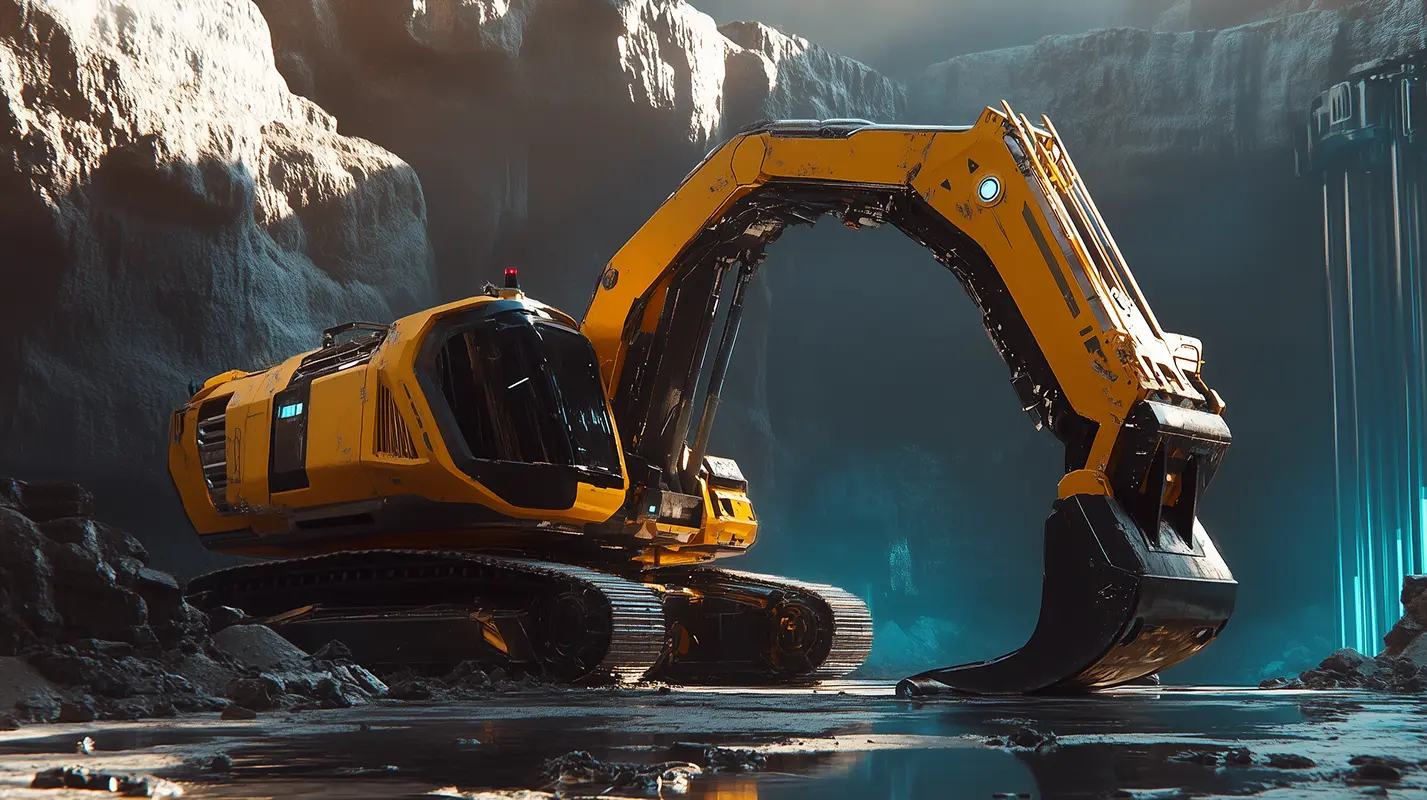The role of artificial intelligence in revolutionizing the construction industry

AI is transforming the construction industry by enhancing project management, improving safety, and increasing efficiency in construction processes
Enhancing project management AI significantly enhances project management by providing advanced tools for planning, scheduling, and resource allocation. AI algorithms can analyze vast amounts of data from previous projects to predict potential delays and optimize project timelines. By using AI-driven project management software, construction managers can create more accurate schedules, allocate resources more efficiently, and identify risks before they become critical issues. This leads to better-managed projects, reduced costs, and timely completion of construction work.
Improving Safety AI plays a crucial role in improving safety on construction sites. AI-powered systems can monitor job sites in real-time using cameras and sensors to detect potential hazards and unsafe practices. For instance, AI can analyze video feeds to identify workers not wearing proper safety gear or to detect dangerous situations like structural instabilities. Additionally, AI can predict and prevent accidents by analyzing historical safety data and providing recommendations for risk mitigation. By enhancing safety protocols, AI helps protect workers and reduces the incidence of accidents and injuries on construction sites.


Enhancing design and planning AI enhances design and planning in construction by enabling the creation of smarter and more efficient building designs. AI-powered design software can generate optimized building plans based on various parameters such as cost, energy efficiency, and sustainability. This software can also simulate different design scenarios to identify the most effective solutions. For example, AI can help architects design buildings that maximize natural light and reduce energy consumption. By leveraging AI in the design phase, construction projects can achieve better outcomes in terms of functionality, aesthetics, and sustainability.
Facilitating Predictive Maintenance AI facilitates predictive maintenance by monitoring the condition of construction equipment and infrastructure in real-time. AI systems can analyze data from sensors embedded in machinery and structures to predict when maintenance is needed, preventing breakdowns and costly repairs. This proactive approach ensures that equipment operates efficiently and infrastructure remains in good condition. Predictive maintenance not only extends the lifespan of machinery and buildings but also minimizes downtime and operational disruptions.

AI in construction represents the integration of cutting-edge technology with traditional building practices, driving innovation and improving the overall quality and sustainability of construction projects.
Driving Innovation in construction techniques AI drives innovation in construction techniques by enabling the development of new methods and materials. For example, AI can help develop advanced construction materials that are stronger, lighter, and more sustainable. AI can also optimize construction techniques such as 3D printing, which allows for the rapid and cost-effective production of building components. These innovations lead to more efficient and sustainable construction practices, reducing the environmental impact of building projects.
Promoting sustainable construction AI promotes sustainable construction by optimizing energy usage and reducing waste. AI-powered systems can analyze the energy consumption of buildings and suggest ways to improve energy efficiency, such as optimizing HVAC systems or incorporating renewable energy sources. Additionally, AI can help minimize construction waste by accurately predicting material needs and optimizing construction processes. By promoting sustainable practices, AI helps the construction industry reduce its carbon footprint and contribute to environmental conservation.
Enhancing Collaboration and Communication AI enhances collaboration and communication within construction teams by providing intelligent tools for project coordination. AI-driven platforms can facilitate real-time communication among team members, regardless of their location, and provide a centralized repository for project documents and data. These platforms can also use AI to analyze communication patterns and suggest ways to improve collaboration. By improving communication and collaboration, AI helps construction teams work more efficiently and effectively, leading to better project outcomes.
